-
oxybutynin generic
oxybutynin: Adult Dosing
Dosage forms: 5; 5/5 mL; 5,10,15 ERoveractive bladder
- immediate-release form
- Dose: 5 mg PO bid-tid; Max: 5 mg PO qid; Info: start 2.5 mg PO bid-tid in elderly pts
- extended-release form
- Dose: 5-15 mg PO qd; Start: 5-10 mg PO qd, incr. 5 mg/day qwk; Max: 30 mg/day; Info: do not cut/crush/chew
renal dosing
- not defined
- renal impairment: caution advised
hepatic dosing
- not defined
- hepatic impairment: caution advised
oxybutynin: Peds Dosing
Dosage forms: 5; 5/5 mL; 5,10,15 ERoveractive bladder
- immediate-release form, >5 yo
- Dose: 5 mg PO bid-tid; Max: 15 mg/day
- extended-release form, >6 yo
- Dose: 5-15 mg PO qd; Start: 5 mg PO qd, incr 5 mg/day qwk; Max: 20 mg/day; Info: do not cut/crush/chew
*overactive bladder
- immediate-release form, 1-5 yo
- Dose: 0.2 mg/kg PO bid-qid; Max: 15 mg/day
renal dosing
- not defined
- renal impairment: caution advised
hepatic dosing
- not defined
- hepatic impairment: caution advised
oxybutynin: Contraindications/Cautions
- hypersens. to drug/class/compon.
- urinary retention
- gastric retention
- glaucoma, uncontrolled angle-closure
- caution if impaired liver fxn
- caution if impaired renal fxn
- caution if bladder obstruction
- caution if GI obstruction disorder
- caution if ulcerative colitis
- caution if intestinal atony
- caution if myasthenia gravis
- caution if GERD
- caution if cardiac dz
- caution if HTN
- caution if hyperthyroidism
- caution if prostatic hypertrophy
- caution if anticholinergic use
- caution in elderly pts
oxybutynin: Drug Interactions
Contraindicated
Avoid/Use Alternative
Monitor/Modify Tx
Therapeutic Advantage
Caution Advised
oxybutynin: Adverse Reactions
Serious Reactions
- heat stroke
- hallucinations
- seizures
- tachycardia
- arrhythmias
- HTN
Common Reactions
- dry mouth
- dizziness
- somnolence
- constipation
- urinary hesitancy/retention
- nausea
- blurred vision
- dyspepsia
- abdominal pain
- headache
- UTI
- diarrhea
- asthenia
- dry mucous membranes
- palpitations
- insomnia
- nervousness
- confusion
- dry eyes
- taste disturbance
- mydriasis
- cycloplegia
- impotence
- lactation suppression
- peripheral edema
oxybutynin: Safety Monitoring
-
Pregnancy:
B
- Lactation:
Safety Unknown
- Monitoring Parameters:
no routine tests recommended
oxybutynin: Pharmacology
- Metabolism: liver extensively, GI tract; CYP450: 3A4 substrate; Info: active metabolite
- Excretion: urine (<0.1% unchanged); Half-life: 2-3h, 5h (elderly)
- Class:
Anti-Spasmodics, GU
- Mechanism Of Action
antagonizes acetylcholine at muscarinic receptors; relaxes bladder smooth muscle, inhibits involuntary detrusor muscle contractions (anticholinergic)oxybutynin: Manufacturer/Pricing
- Manufacturer:
generic
- DEA/FDA: Rx
Approximate Retail Price
- tablet:
- 5 mg (60 ea): $12.99
- syrup:
- 5 mg/5ml (120 ml): $10.00
- tablet extended release, 24 hr:
- 5 mg (100 ea): $289.98
- 10 mg (100 ea): $292.00
- 15 mg (100 ea): $299.99
oxybutynin: Patient Education
- Generic Name: oxybutynin (oral)
- Pronounced: ox i BYOO ti nin
- Brand Names: Ditropan, Ditropan XL, Urotrol
What is the most important information I should know about oxybutynin?
You should not use this medication if you are allergic to oxybutynin, or if you have untreated or uncontrolled narrow-angle glaucoma, a blockage in your digestive tract (stomach or intestines), or if you are unable to urinate.
Before using oxybutynin, tell your doctor if you have glaucoma, liver or kidney disease, an enlarged prostate, myasthenia gravis, ulcerative colitis, a blockage in your stomach or intestines, myasthenia gravis, or a stomach disorder such as gastroesophageal reflux disease (GERD) or slow digestion.
Avoid becoming overheated or dehydrated during exercise and in hot weather. Oxybutynin can decrease perspiration and you may be more prone to heat stroke.
Oxybutynin can cause side effects that may impair your vision or reactions. Be careful if you drive or do anything that requires you to be alert and able to see clearly.
There are many other medicines that can interact with oxybutynin. Tell your doctor about all the prescription and over-the-counter medications you use. This includes vitamins, minerals, herbal products, and drugs prescribed by other doctors. Do not start using a new medication without telling your doctor. Keep a list with you of all the medicines you use and show this list to any doctor or other healthcare provider who treats you.
Stop using this medication and call your doctor if you have serious side effects such as hot and dry skin, extreme thirst, severe stomach pain or constipation, pain or burning when you urinate, or if you stop urinating.
What is oxybutynin?
Oxybutynin reduces muscle spasms of the bladder and urinary tract.
Oxybutynin is used to treat symptoms of overactive bladder, such as frequent or urgent urination, incontinence (urine leakage), and increased night-time urination.
Oxybutynin may also be used for other purposes not listed in this medication guide.
What should I discuss with my healthcare provider before using oxybutynin?
Do not use this medication if you are allergic to oxybutynin, or if you have:
- untreated or uncontrolled glaucoma;
- a blockage in your digestive tract (stomach or intestines); or
- if you are unable to urinate.
Before using oxybutynin, tell your doctor if you are allergic to any drugs, or if you have:
- glaucoma;
- liver disease;
- kidney disease;
- an enlarged prostate;
- ulcerative colitis;
- a blockage in your stomach or intestines;
- a muscle disorder such as myasthenia gravis; or
- a stomach disorder such as gastroesophageal reflux disease (GERD) or slow digestion.
If you have any of these conditions, you may need a dose adjustment or special tests to safely take oxybutynin.
FDA pregnancy category B. This medication is not expected to be harmful to an unborn baby. Tell your doctor if you are pregnant or plan to become pregnant during treatment.
It is not known whether oxybutynin passes into breast milk or if it could harm a nursing baby. Do not use this medication without telling your doctor if you are breast-feeding a baby.
How should I use oxybutynin?
Take this medication exactly as it was prescribed for you. Do not take the medication in larger amounts, or take it for longer than recommended by your doctor. Follow the directions on your prescription label.
Take this medication with a full glass of water.
Oxybutynin may be taken with or without food.
Do not crush, chew, or break an extended-release tablet. Swallow the pill whole. It is specially made to release medicine slowly in the body. Breaking the pill would cause too much of the drug to be released at one time.
Measure the liquid form of oxybutynin with a special dose-measuring spoon or cup, not a regular table spoon. If you do not have a dose-measuring device, ask your pharmacist for one.
Try to take this medication at the same time each day.
If you use the extended-release form of oxybutynin, you may notice what looks like part of a tablet in your stools. The tablet shell is not designed to be absorbed by the body, and may therefore pass into the stools without dissolving. This is a normal side effect of oxybutynin extended-release tablets.
Store oxybutynin at room temperature away from moisture and heat.
What happens if I miss a dose?
Take the missed dose as soon as you remember. If it is almost time for your next dose, skip the missed dose and take the medicine at your next regularly scheduled time. Do not take extra medicine to make up the missed dose.
What happens if I overdose?
Seek emergency medical attention if you think you have used too much of this medicine. Overdose symptoms may include restlessness, tingly feeling, fever, uneven heart rate, vomiting, and urinating less than usual or not at all.
What should I avoid while using oxybutynin?
Oxybutynin can cause blurred vision, drowsiness, or dizziness. Be careful if you drive or do anything that requires you to be alert and able to see clearly.
Avoid becoming overheated or dehydrated during exercise and in hot weather. Oxybutynin can decrease perspiration and you may be more prone to heat stroke.
What are the possible side effects of oxybutynin?
Get emergency medical help if you have any of these signs of an allergic reaction: hives; difficulty breathing; swelling of your face, lips, tongue, or throat.
Stop using oxybutynin and call your doctor at once if you have any of these serious side effects:
- hot, dry skin and extreme thirst;
- severe stomach pain or constipation;
- pain or burning when you urinate; or
- urinating less than usual or not at all.
Less serious side effects may include:
- dry mouth;
- dry eyes, blurred vision;
- mild constipation;
- diarrhea;
- nausea, mild stomach pain or upset;
- dizziness, drowsiness, weakness;
- headache;
- sleep problems; or
- runny nose.
This is not a complete list of side effects and others may occur. Tell your doctor about any unusual or bothersome side effect.
What other drugs will affect oxybutynin?
The following drugs can interact with oxybutynin. Tell your doctor if you are using any of these:
- other bladder or urinary medications such as darifenacin (Enablex), flavoxate (Urispas), tolterodine (Detrol), or solifenacin (Vesicare);
- glycopyrrolate (Robinul);
- flecainide (Tambocor);
- mepenzolate (Cantil);
- thioridazine (Mellaril);
- HIV /AIDS medicine such as nelfinavir (Viracept) or ritonavir (Norvir);
- an antibiotic such as clarithromycin (Biaxin), erythromycin (E.E.S., E-Mycin, Ery-Tab, Erythrocin), itraconazole (Sporanox), ketoconazole (Nizoral), or troleandomycin (Tao);
- atropine (Donnatal, and others), benztropine (Cogentin), dimenhydrinate (Dramamine), methscopolamine (Pamine), or scopolamine (Transderm-Scop);
- bronchodilators such as ipratroprium (Atrovent) or tiotropium (Spiriva);
- irritable bowel medications such as dicyclomine (Bentyl), hyoscyamine (Anaspaz, Cystospaz, Levsin, and others), or propantheline (Pro-Banthine); or
- an antidepressant such as amitriptyline (Elavil, Etrafon), fluoxetine (Prozac), fluvoxamine (Luvox), clomipramine (Anafranil), desipramine (Norpramin), doxepin (Sinequan), imipramine (Janimine, Tofranil), nortriptyline (Pamelor), paroxetine (Paxil), and others.
This list is not complete and there may be other drugs that can interact with oxybutynin. Tell your doctor about all your prescription and over-the-counter medications, vitamins, minerals, herbal products, and drugs prescribed by other doctors. Do not start a new medication without telling your doctor.
Where can I get more information?
Your pharmacist can provide more information about oxybutynin.
Remember, keep this and all other medicines out of the reach of children, never share your medicines with others, and use this medication only for the indication prescribed.
Every effort has been made to ensure that the information provided by Cerner Multum, Inc. ('Multum') is accurate, up-to-date, and complete, but no guarantee is made to that effect. Drug information contained herein may be time sensitive. Multum information has been compiled for use by healthcare practitioners and consumers in the United States and therefore Multum does not warrant that uses outside of the United States are appropriate, unless specifically indicated otherwise.
Multum's drug information does not endorse drugs, diagnose patients or recommend therapy. Multum's drug information is an informational resource designed to assist licensed healthcare practitioners in caring for their patients and/or to serve consumers viewing this service as a supplement to, and not a substitute for, the expertise, skill, knowledge and judgment of healthcare practitioners. The absence of a warning for a given drug or drug combination in no way should be construed to indicate that the drug or drug combination is safe, effective or appropriate for any given patient. Multum does not assume any responsibility for any aspect of healthcare administered with the aid of information Multum provides.
The information contained herein is not intended to cover all possible uses, directions, precautions, warnings, drug interactions, allergic reactions, or adverse effects. If you have questions about the drugs you are taking, check with your doctor, nurse or pharmacist.
oxybutynin: Pill Pictures
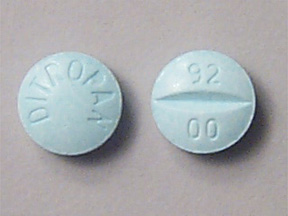 Ditropan (oxybutynin) 5 mg
Ditropan (oxybutynin) 5 mg
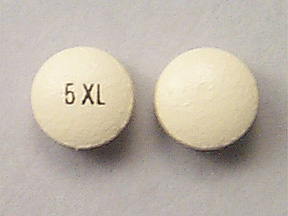 Ditropan XL (oxybutynin) 5 mg
Ditropan XL (oxybutynin) 5 mg
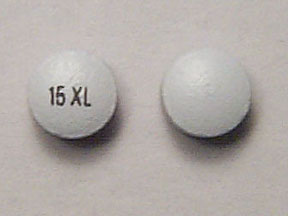 Ditropan XL (oxybutynin) 15 mg
Ditropan XL (oxybutynin) 15 mg
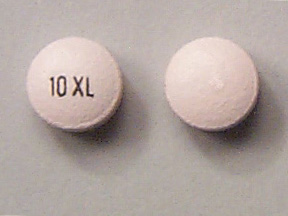 Ditropan XL (oxybutynin) 10 mg
Ditropan XL (oxybutynin) 10 mg
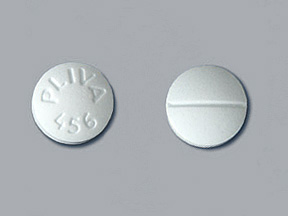 oxybutynin (generic) 5 mg
oxybutynin (generic) 5 mg
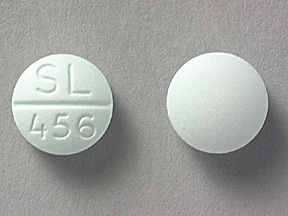 oxybutynin (generic) 5 mg
oxybutynin (generic) 5 mg
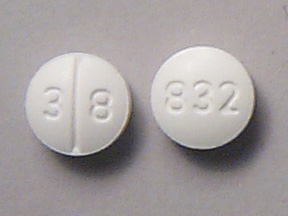 oxybutynin (generic) 5 mg
oxybutynin (generic) 5 mg
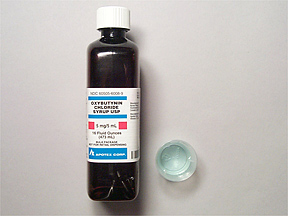 oxybutynin (generic) 5 mg/5 ml
oxybutynin (generic) 5 mg/5 ml
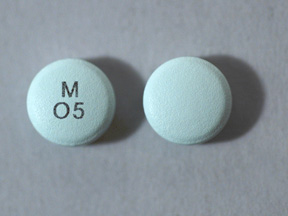 oxybutynin (generic) 5 mg
oxybutynin (generic) 5 mg
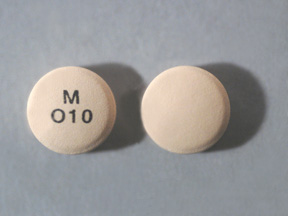 oxybutynin (generic) 10 mg
oxybutynin (generic) 10 mg
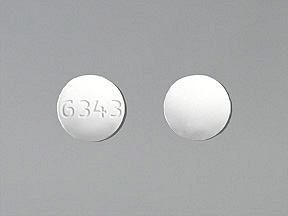 oxybutynin (generic) 15 mg
oxybutynin (generic) 15 mg
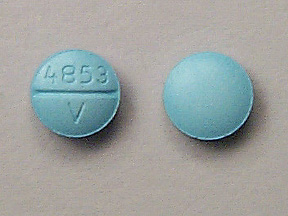 oxybutynin (generic) 5 mg
oxybutynin (generic) 5 mg
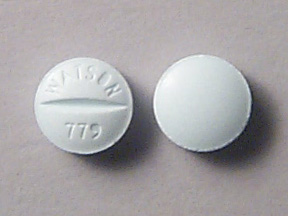 oxybutynin (generic) 5 mg
oxybutynin (generic) 5 mg
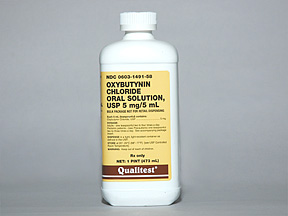 oxybutynin (generic) 5 mg/5 ml
oxybutynin (generic) 5 mg/5 mlHow should I use oxybutynin?
Take this medication exactly as it was prescribed for you. Do not take the medication in larger amounts, or take it for longer than recommended by your doctor. Follow the directions on your prescription label.
Take this medication with a full glass of water.
Oxybutynin may be taken with or without food.
Do not crush, chew, or break an extended-release tablet. Swallow the pill whole. It is specially made to release medicine slowly in the body. Breaking the pill would cause too much of the drug to be released at one time.
Measure the liquid form of oxybutynin with a special dose-measuring spoon or cup, not a regular table spoon. If you do not have a dose-measuring device, ask your pharmacist for one.
Try to take this medication at the same time each day.
If you use the extended-release form of oxybutynin, you may notice what looks like part of a tablet in your stools. The tablet shell is not designed to be absorbed by the body, and may therefore pass into the stools without dissolving. This is a normal side effect of oxybutynin extended-release tablets.
Store oxybutynin at room temperature away from moisture and heat.
Brand names
- Butyn® (PK)
- Cystrin® (GB, PL)
- Delifon® (CO)
- Ditropan® (AR, AT, AU, BE, CH, CZ, FI, FR, GB, GR, HN, HU, IT, LU, PL, PT, SE, TW)
- Ditropan® Syrup
- Ditropan® XL
- Diutropin® (TH)
- Dridase® (DE, NL)
- Driptane® (BG, EE, PH, PL)
- Frenurin® (BR)
- Gradual® (UY)
- Iliaden® (PE)
- Inprax® (MX)
- Kentera® (AT, BE, BG, CH, CZ, DE, DK, ES, FI, FR, GB, GR, HN, IE, IT, NL, NO, PT, RU, SE, TR)
- Kentera® Patch (GB, IE)
- Lenditro® (ZA)
- Lyrinel® (IL, MX, TH)
- Lyrinel® Oros SR (KP)
- Lyrinel® XL (GB)
- Mutum® (EC)
- Mutum® CR (CO, EC)
- Nefryl® (MX)
- Novitropan® (IL)
- Obutin® (SG)
- Odranal® (CN)
- Oxyban® (TW)
- Pollakisu® (JP)
- Reteven® (VE)
- Tavor® (MX)
- Tropan® (IN)
- Urihexal® (ZA)
- Uroflax® (PY)
- Uroxal® (HU)
- Zatur Ge (FR)
What other drugs will affect oxybutynin?
The following drugs can interact with oxybutynin. Tell your doctor if you are using any of these:- other bladder or urinary medications such as oxybutynin (Enablex), flavoxate (Urispas), tolterodine (Detrol), or solifenacin (Vesicare);
- glycopyrrolate (Robinul);
- flecainide (Tambocor);
- mepenzolate (Cantil);
- thioridazine (Mellaril);
- HIV /AIDS medicine such as nelfinavir (Viracept) or ritonavir (Norvir);
- an antibiotic such as clarithromycin (Biaxin), erythromycin (E.E.S., E-Mycin, Ery-Tab, Erythrocin), itraconazole (Sporanox), ketoconazole (Nizoral), or troleandomycin (Tao);
- atropine (Donnatal, and others), benztropine (Cogentin), dimenhydrinate (Dramamine), methscopolamine (Pamine), or scopolamine (Transderm-Scop);
- bronchodilators such as ipratroprium (Atrovent) or tiotropium (Spiriva);
- irritable bowel medications such as dicyclomine (Bentyl), hyoscyamine (Anaspaz, Cystospaz, Levsin, and others), or propantheline (Pro-Banthine); or
- an antidepressant such as amitriptyline (Elavil, Etrafon), fluoxetine (Prozac), fluvoxamine (Luvox), clomipramine (Anafranil), desipramine (Norpramin), doxepin (Sinequan), imipramine (Janimine, Tofranil), nortriptyline (Pamelor), paroxetine (Paxil), and others.
oxybutynin: overdose
In case of overdose, call your local poison control center at 1-800-222-1222. If the victim has collapsed or is not breathing, call local emergency services at 911.
Symptoms of overdose may include:
- flushing
- fever
- constipation
- dry skin
- sunken eyes
- extreme tiredness
- irregular heartbeat
- vomiting
- inability to urinate
- memory loss
- semi-awake state
- confusion
- wide pupils
Copyright 1996-2006 Cerner Multum, Inc. Version: 5.05. Revision Date: 10/09/2007
Last Updated: 10/09/2007
Subscribe to the "News" RSS Feed 
TOP ۞
